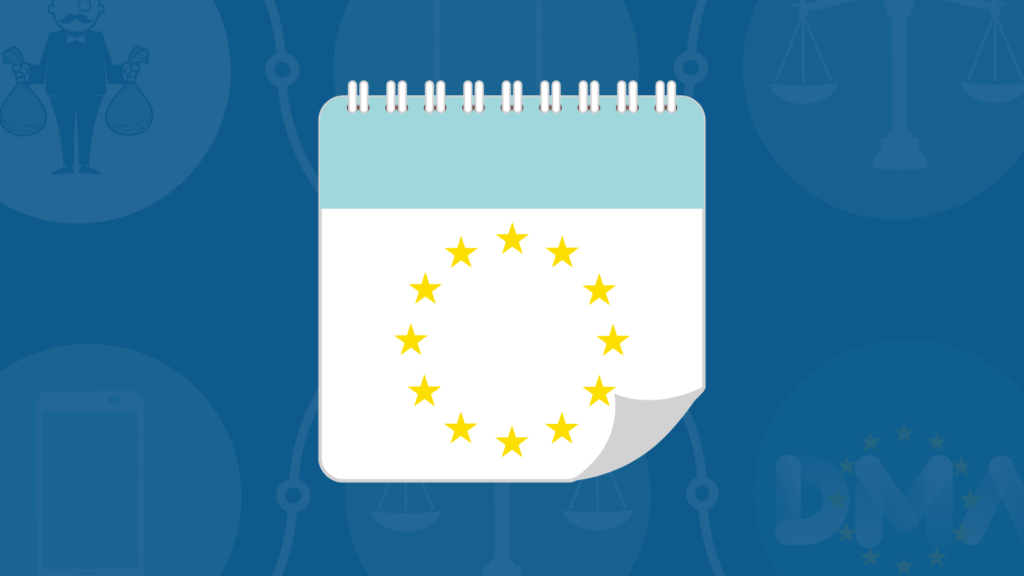Article by AVOW CEO & Co-Founder Robert Wildner
It’s been just over a month since the European Union’s (EU) landmark Digital Markets Act (DMA) launched. As of March 6, this pivotal moment forced Google and Apple to allow their customers to download alternative app stores onto Android and iOS. What’s more, they’re now obligated to give users the decision over which apps come preloaded on their new smartphones too. So how have things gone in the last few weeks?
As the founder of an app growth company whose specialism is mobile OEM advertising, I’ve naturally kept an eye on the subject. While I admire these big industry leaders, I’ve long thought their dominance is a monopoly—and now the EU agrees. What I’ve subsequently seen in the last month has been promising, if not uncomplicatedly so. On the other hand, I’ve also read a range of perspectives that have challenged me too. With that in mind, let’s take a look at how the DMA is going one month in.
No Comply: Are Google and Apple trying to undermine the EU?
As The Verge reports, the European Commission (EC) is already investigating Apple and Google for DMA noncompliance.
In total, the EC will conduct five inquiries examining, among other things: the implementation of anti steering rules in the two tech giant’s app stores; Google’s ability to self-preference its services via its search engine, and the efficacy of Apple’s browser choice screen. It will also look at the iPhone manufacturer’s new developer terms, which, as TechCrunch reports, include requirements for developers to pay 50 cents (EUR) per fresh installation after 1 million such downloads—not to mention commision rates.
Some, like Spotify CEO Daniel Ek, might argue that it’s not an ideal start for the EU legislation. But doesn’t it in fact show that the EC is taking things seriously? Even the DMA’s critics, such as Lazar Radic from Portland’s International Center for Law and Economics acknowledge that the law isn’t “self-executing.” So let’s not forget that the DMA is unprecedented. Like any new legislation, of course there are going to be teething problems in its execution. But we’ll only discover what they might be by testing it.
Spotify, Fortnite, and Opera bask in the DMA’s Glory
As spring arrives, so do the first fruits of the DMA. And as per the Verge, Spotify is planning on taking advantage of the new legislation, which allows it to advertise its full range of subscriptions using links to its own website within Apple’s App Store itself. Previously this hadn’t been possible, as Apple had both limited subscription offers for services rivaling its Music streaming platform, as well as blocked out-of-app links. Although Spotify has so far only submitted an application to do so with the App Store, it’s a promising step.
What’s more, two days before the DMA launched, a 5-year antitrust investigation by the EC, which was sparked by a complaint by Spotify on this very issue, concluded by fining Apple 1.8 billion Euros. Who says nothing ever changes?
Elsewhere, there’s been more good news. Following the DMA’s launch, Apple has relented in its battle with Fortnite developer Epic, paving the way for the return of the long-running, multimode online videogame to the App Store. Moreover, the DMA’s rules allowing users to choose which essential apps they’d like to use when booting up new smartphones have already been game-changing. Only two weeks after the DMA came into force, the mobile web browser Opera, originally founded in Norway, has reported a 168 percent increase in iOS downloads. And in France alone, iOS installations of the browser increased 402 percent, while Android downloads boomed by 54 percent.
As such, while there might still be a few grey clouds on the horizon, the future for the DMA is looking bright.
Go West: DMA-style legislation heads to the USA
Over the pond, similar changes are afoot. Last month, the Department of Justice filed an antitrust suit against Apple for restricting access to its software and hardware, thereby preventing competition. As a result, the possibility of DMA-style legislation has become a hot topic among commentators, especially naysayers.
On the one hand, some people, such as Yahoo Finance’s Grace Kay, are anxious that DMA-style legislation in America could mean that iPhone users enjoy less privacy, more spyware, and a less enjoyable user-experience. By allowing more options on the App Store, she reasons, the gates could open to a greater number of bug-ridden apps. On the other hand, Kati Suominen from the Center for Strategic and International Studies argues that the DMA disproportionately targets US companies, and that the supposed additional cost it entails will be passed onto consumers.
While both compellingly written, I must take issue with aspects of these articles. Firstly, the likelihood of Apple making an inferior and less secure product just because the company must now allow fair competition seems like scaremongering. Indeed, while there will hopefully soon be a greater number of apps available on the App Store, the idea that Apple will allow harmful services into its ecosystem seems far-fetched too. Secondly, and contrary to Suominen’s otherwise skilfully composed argument, the logic that giving consumers more choice will mean that the services apps provide will become more expensive seems similarly flawed. More competition for the same audience will inevitably mean more competitive pricing—not less. Indeed, for that matter, there’s also a good reason why the EU has targeted Apple and Google, and it has nothing to do with their postcodes.
So that’s it for the DMA’s first month in action. AVOW will continue to keep an eye on the topic, so stay tuned.
If you’re interested in how these changes might affect your mobile app growth strategy, then book a free consultation with AVOW’s experts today! We can help you navigate the new regulations with mobile OEM advertising and ensure your app reaches the right audience.
